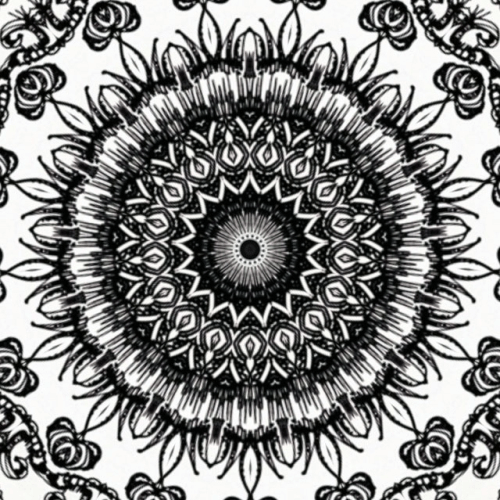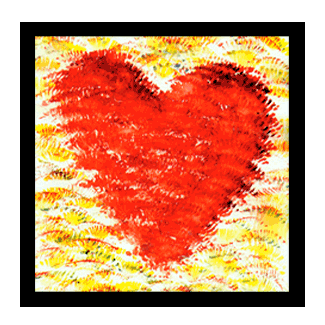The theme that runs through my essays up to this point is that when we strengthen our will to align it with our ideals, while always recognizing that our will is a small part of a bigger schema, and… when we understand our emotions so that they serve us with information rather than flood us with fuel for reactionary behaviors, we find a balance and stability that broadens our perspective and lends itself to purposeful living. I see it as the psychological condition that opens up the spiritual domain.
The Choice Is Yours
 19th century philosopher William James has been my guide throughout these essays and, once again, I will draw on his words of wisdom to make my points. I will also add some perspective that puts these ideas into the context of living in the world we are in.
19th century philosopher William James has been my guide throughout these essays and, once again, I will draw on his words of wisdom to make my points. I will also add some perspective that puts these ideas into the context of living in the world we are in.
I agree with William James, that whether conscious or not, humans are creatures of patterns and habits. “All our life, so far as it has definite form, is but a mass of habits …practical, emotional and intellectual, systematically organized for our weal or woe, and bearing us irresistibly toward our destiny, whatever the latter may be.” It is in the understanding of this that we can then choose to shape our habits.
James says, “…the teacher’s prime concern should be to ingrain into the pupil that assortment of habits that shall be most useful to him/her throughout life.” It was John Stewart Mill who said, “Character is a completely fashioned will.” It is easy to see strength and certainty in this approach to life. No artist, musician, athlete, craftsman or surgeon attains mastery without the habit of practice, the repetition of behavior. In the creative process it is forming a structure which then shapes the creative energy.
From Psychological to Spiritual
It is when we align our will, the habits we create… with our ideals, our highest aspirations… that we are consciously affecting the forefront of existence. We participate in the conscious evolution. The breadth or our perspective contextualizes the way we see the application of our will. Known for his research and writing on “religious experiences” James sums up, in the broadest way, the characteristics of religious life, including the following beliefs:
- That the visible world is a part of a more spiritual universe from which it draws its chief significance;
- That union or harmonious relation with the higher universe is our true end;
- That prayer or inner communion with the spirit thereof…be that spirit “God” or “law”…is a process wherein work is really done, and spiritual energy flows in and produces effects, psychological or material, within the phenomenal world. (Here is where we come back to faith…the leap without hesitation)
James also says that religion includes the following psychological characteristics:
- A zest, which adds itself like a gift to life, and takes the form either of lyrical enchantment or of appeal to earnestness and heroism.
- An assurance of safety and a temper of peace, and, in relation to others, a preponderance of loving affection.
Never-ending Love
 Even those, who may not offer the same conclusions or beliefs as William James, will acknowledge that virtues such as love, peace, fairness and harmony represent qualitatively desirable experiences, and can be affected through behaviors of choice.
Even those, who may not offer the same conclusions or beliefs as William James, will acknowledge that virtues such as love, peace, fairness and harmony represent qualitatively desirable experiences, and can be affected through behaviors of choice.
It is not as important to hold specific beliefs beyond that which we know as it is to monitor and maintain our own well-being, our own equanimity. It is the Dalai Lama who speaks to the importance of “warm heartedness” and advocates for a global commitment to a code of secular ethics. Love shows up in the writings of every religion and the wisdom of the greatest writers, teachers and thinkers of their times.
“The truth that for our life one law is valid — the law of love, which brings the highest happiness to every individual as well as to all mankind.” Leo Tolstoy
“Where there is love there is life.” Mahatma Gandhi
“Love is the only force capable of transforming an enemy into friend.” Martin Luther King Jr.
“Our human compassion binds us the one to the other — not in pity or patronizingly, but as human beings who have learnt how to turn our common suffering into hope for the future.” Nelson Mandela
“Wisdom, courage and compassion are the three greatest virtues.” Confucius
“Love your enemy. Do good to those who would persecute you.” Jesus Christ
While I am sure almost no one would disagree with these statements and the common understanding of the importance of love for every individual and humanity as a whole. Where it gets more difficult is when we experience violence and anger towards us or feel the threat of what feels like an “enemy”. Safety and survival seems to trump our desire to love the other.
In the next installment I will explore how a strengthened will, full of practiced habits; a emotionally stable outlook; and the tenacity of staying true to what matters most…maybe it is love…can show a clear way for, first each one of us, and then the direction of our society to live and transform the course we can take.
First we have to look at what is missing in the way we approach problems and then we need to develop a courage to assert a way that has always been available to us…and taught to us by the spiritual guides throughout history.


